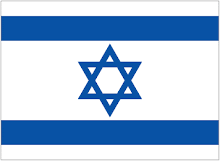It's a bit too neutral and careful for a supposedly Right-of-centre newspaper, but it is still worth a read, if not only for a glimpse of how the establishment see no problem with current developments, and just how immigration is transforming Britain before our very eyes.
In a shabby converted sweetshop in Leyton, East London, a group of burka-clad Muslim women sit in a waiting room. They have an appointment with Dr Suhaib Hasan at his twice-weekly surgery.
The women look worried. There is no talking in the airless reception area - the only sound is a fan purring quietly in the corner as temperatures outside exceed 80F.
Inside, the atmosphere is just as stifling. There are no magazines, television or other diversions. The beige walls are bare except for a flow-chart depicting the process of securing a Muslim divorce, and a picture of Mecca.
This is no GP's surgery or Citizens Advice Bureau. Within these non-descript walls lies the nerve centre of sharia law in Britain, the headquarters of the Islamic Sharia Council, which oversees the growing number of Muslim courts operating in Britain.
For the first time, the Islamic Sharia Council has granted access to a newspaper to observe the entire sharia legal process in Britain. Over several weeks, I was allowed to witness the filing of complaints, individual testimony hearings and the monthly meeting of imams, or judges, where rulings are handed down.
Sharia has been operating here, in parallel to the British legal system, since 1982. Work includes issuing fatwas - religious rulings on matters ranging from why Islam considers homosexuality a sin to why two women are equivalent to one male witness in an Islamic court.
The Islamic Sharia Council also rules on individual cases, primarily in matters of Muslim personal or civil law: divorce, marriage, inheritance and settlement of dowry payments are the most common.
However, in the course of my investigation, I discovered how sharia is being used informally within the Muslim community to tackle crime such as gang fights or stabbings, bypassing police and the British court system.
A few hardline leaders would like it to be taken even further. One told me that Britain should adopt sharia punishments such as stoning and the chopping off of hands to reduce violent crime.
There are 12 councils or courts operating in Britain under Dr Hasan's group, based in London, Birmingham, Manchester, Rotherham and Bradford. Scores more imams dispense justice through their own mosques.
A study last week by the thinktank Civitas claimed that there could be as many as 85 sharia courts in Britain, although Dr Hasan says most of these are not formal courts. But it is certainly a growing network.
In his courts, support staff interview plaintiffs and compile a case study. Judgments are delivered by senior imams at closed monthly meetings and are sent in writing to the concerned parties. Up to 7,000 cases have been handled so far.
The Islamic Sharia Council is listed as a charity but people seeking a divorce, or talaq, must fill in a form and pay a fee. For a man it is £100; for women, it is £250 because the imams say it takes more work to process a woman's application as her word has to be corroborated.
The literal meaning of sharia is 'source of water in the desert', meaning the source of all spiritual life for Muslims. This is not just a code of law, but a way of life.
In sharia-based societies, such as Saudi Arabia or the old Taliban-ruled Afghanistan, crimes against society are punished by beheadings, stoning to death and amputations. Women are kept in purdah and limited to child-rearing and caring for the home.
All Western influences, from alcohol, music, television and movies, are banned. It is a rigid prescription for Islamic life that seeks its guidance from the days of the Prophet in the 7th Century.
In Britain, sharia courts are permitted to rule only in civil cases, such as divorce and financial disputes. Until last year, these rulings depended on voluntary compliance among Muslims. But now, due to a clause in the Arbitration Act 1996, they are enforceable by county and high courts.
Sharia courts are classified in the same way as arbitration tribunals - with rulings binding in law provided both parties in the dispute agree to give them the power to rule on their case.
However, a Muslim couple must still be divorced in the British courts for it to recognised under British law. The same provision in the Arbitration Act applies to Jewish Beth Din courts, which resolve similar civil cases.
Dr Hasan is the man who introduced sharia courts to Britain almost 30 years ago.
The softly spoken, grey-bearded scholar was born in Pakistan, studied in Saudi Arabia and worked in East Africa before moving to Britain in the Sixties. He is the Secretary of the Islamic Sharia Council of Britain and a member of the senior panel of imams who sit once a month at Regent's Park Mosque in London.
In Leyton, the imam calls the women into his office to begin a private session to gather evidence. The setting is modest yet its proceedings have all the gravity of a British courtroom - and most cases are conducting in English.
Under Muslim law, a man can divorce his wife simply by uttering the word 'talaq', yet a woman cannot be granted a divorce without the consent of her husband or winning a dissolution of the marriage from the imam. Even if the couple are divorced under British law, they remain married under Islam until divorced under the religious law, too.
Dr Hasan believes that far from trampling on women's rights, the Islamic Sharia Council is empowering Muslim women in Britain, giving them a way out of abusive and violent marriage.
Sitting behind a plywood desk, flanked by shelves of books on Islamic law and copies of the Koran, Dr Hasan hears evidence from an Afghan woman called Ameena (her name has been changed for her protection). She claims her husband is violent towards her and their five children, and she wants a divorce.
Ameena, 35, is backed by the testimony of two social workers, one of whom is Muslim, from a women's refuge.
'He beats me and the children, he doesn't give us our rights, he doesn't love me or the children and he is not interested in me and the children,' she says, also citing her husband's 'mental behaviour'.
The couple had entered an arranged marriage in the sand-blown city of Kandahar and came to Britain as refugees from war. Some years later the marriage faltered.
Dr Hasan's sparely written notes set out the extent of the marital misery: 'He beat her. Then he asked her to massage his shoulders and legs. When she said no, he beat her.
'One time her nose was broken and an operation was carried out. Another day, because of the beating, there was a miscarriage.'
Ameena's evidence is corroborated by statements from one of her daughters. The teenager said that as well as hitting her mother and the children, the father, who is in his 40s, forced her into an arranged marriage in Pakistan. She wants her marriage dissolved, too.
So far Ameena's husband has refused to grant her a divorce, accusing her and his daughter of being 'not mentally fit'.
Dr Hasan decides the case, which has been going on since 2008, is sufficiently serious to merit the consideration of the monthly meeting of senior judges at Regent's Park Mosque. Now Ameena's future lies in their hands.
Later that week, seven imams gather in a sparsely furnished committee room in the shadows of the mosque's magnificent golden dome. Seated around a rectangular table set with mineral water, a bowl of fruit and a box of Fox's luxury biscuits, they go through the various cases.
To the casual observer, it may appear like a rather dry committee meeting. But these men are in effect running a legal system that critics fear could fragment the legal framework in Britain. Laws that once ruled supreme in Kabul are now being enforced in cities across Britain.
It becomes clear that Ameena's story of violence, abandonment and difficulty in securing an Islamic divorce is not isolated. Several other cases during the meeting detail claims of 'terrifying abuse', including one where a gun was placed against a woman's head, and another husband who tried to strangle his wife and children.
If the husband has disputed his wife's word, the court demands her account is corroborated by other witnesses - preferably male. If the wife refuses to agree to give the husband access to their children, even in cases of possible child abuse, the divorce is stalled until that issue is resolved.
In another case, the imams agree a husband has treated the wife badly, beating her and their children and leaving them without support once he had been granted legal status to remain in Britain.
'He ran away and left the family, and the children began to hate the father,' says one of the imams. The man signed a petition for a civil divorce but had so far refused to allow a divorce under Islam.
The imams discuss the division of assets between the couple, including any dowry jewellery. They also decide to contact the husband one last time - if he fails to respond, he risks a dissolution.
Ameena's case is then raised. It is decided that her husband will be given another opportunity to respond. If all efforts to reconcile fail, then the marriage might be dissolved, but it is unclear who will care for the children. Under Islamic law, a child over seven usually goes to the father unless he agrees otherwise.
Ameena's fate remains in limbo. The following week I accompany Dr Hasan into enemy territory: he has been asked to speak to a group of female students in East London about sharia. The audience is made up of educated, articulate feminists, both Muslim and non-Muslim.
He tells them his organisation is concerned simply with implementing sharia law in Muslim personal legal cases and that 90 per cent of the clients are women seeking a divorce. The women nod.
Then he explains that sharia is about preserving the dignity, health and honour of the individuals. The nodding continues.
Confident, Dr Hasan tells them that in every part of the world, there can be only one authority.
'In Britain, the ultimate authority is the Prime Minister. In an army, it is the commander-in-chief. On the bus, it is the bus driver. And in the house, the smallest unit of society, sharia says authority must be with the man to maintain the house.
'The woman's duties are much harsher. Biologically, she differs,' he says. Her duties lie with the cleaning and childcare.
The mood turns black as Dr Hasan continues that under Islam, the woman is seen as someone who needs the protection of a man. In matters of divorce, the right of ending a marriage lies with the man because 'women have emotions, whereas a man thinks first before he speaks'.
At this, one white woman berates Dr Hasan. 'If you had said these things about a Jew or a black person, it would be totally unacceptable. Yet you think it is OK to say women are inferior. I cannot listen to this without making a stand.'
Another woman, an African professor, adds: 'In my house, my husband and I look after each other. It is an equal partnership. I don't need anyone to protect me.' Applause ripples through the audience.
An hour later, Dr Hasan emerges from the meeting - he has been attacked verbally but physically he is unscathed. As we walk together, he tells me that virtually all the imams in the UK are trained either in madrassas or religious schools in India and Pakistan, or are graduates of Islamic universities, such as Al-Azhar in Egypt.
Dr Hasan insists their work is not an attempt to bypass the British legal system and says the Islamic Sharia Council does not seek to extend its powers beyond divorce, marriage, dowry and inheritance cases.
'Muslim personal law can be accommodated within the British legal system. In the divorce process, if the British courts recognise Muslim divorce then there would be no need for us to apply for a divorce through the UK system.'
He refuses to accept that there is an inherent conflict between sharia and British law in areas such as equality for women and human rights.
'The problem with the feminist movement is they don't listen to the other side,' he observes gravely, stroking his beard.
I ask if he believes sharia is the best code of law. 'People say it's harsh, but we say it's a deterrent. In Saudi Arabia very few hands are cut. People will not commit the crime as they know the punishment is so horrible, unlike the UK system where people are jailed and the prison system does not work.
'But we cannot ask for sharia in Britain for criminal cases,' he concludes. 'For that to take place, the State needs to support sharia and I recognise Britain does not.'
Despite the feminists' fury, Dr Hasan is a relative moderate on the subject. Some hardliners want Islamic law to be extended to all criminal cases, tackling problems ranging from knife crime to robbery and under-age sex.
One such figure is Sarfraz Sarwar, leader of the Basildon Islamic Centre in Essex. His views have attracted controversy - his mosque was torched three times and eventually destroyed, and his home has also been attacked.
He tells me the windows of his living room are smashed every six months but the police have never caught the perpetrators. He now leaves the windows permanently broken in defiance.
Mr Sarwar insists sharia should be adopted to address rising crime in Britain. 'The British legal system is fair, but it's also very sweet for criminals,' he tells me.
'Sharia is the ultimate deterrent. If you commit a crime and you're punished by sharia, you won't commit it again. But if we praise anything from Islam, people jump down our throat.'
When I suggest that many people in Britain would find some of sharia's provisions extreme and difficult to accept, he agrees. 'We need to adapt sharia for British law. We could use some of the more moderate measures.'
Such as? 'Child abuse, under-age sex, teenage pregnancy, for example.'
I ask what the penalty would be for under-age sex. 'You won't like it. But sharia says if they're caught doing it, you stone the woman.'
Mr Sarwar's other suggestion is to adapt the 'three strikes' policy on crime. Instead of being jailed on the third conviction, a criminal could face having a hand chopped off.
'That would fit in with the way of life here. I'm not being extreme. This has to be used in moderation, for serious crimes, not petty robbery. In this country, people get away with murder.'
He refuses to accept the notion that values of human rights are enshrined in the British way of life.
'In Victorian days they applied sharia. They held people in stocks - there were public floggings, hangings. Why not go back to it? What's the big beef now? Too many goody-two-shoes talking about human rights.'
Mr Sarwar adds that the violence and intimidation he has faced will not silence him. 'I am not a sheep. I am a British Muslim. I pay my taxes, I obey the law.
'People break my windows but I say to you, why can't we mix and match? Take the best from both worlds. The law is like a curry. Different elements improve the flavour. Why not help improve the law of this country with elements of sharia?'
In some ways, I learned that this is happening already. The Somali community in Britain has long relied on the sharia principle of mediation and arbitration in criminal cases.
Saynab Muhamad, leader of the Somali Family Support Centre and one of the few prominent females in the Somali community, tells me how sharia law was used to resolve the case of knife attacks among teenagers a few years ago.
The family of one victim and the attacker came together under Somali elders and an informal hearing decided that the victim should be compensated by the attacker, who in turn was forgiven for the crime. The police were not involved and the matter was settled amicably.
In Somali Muslim culture, after a conflict or a crime is committed, a hearing is held. The judge, or quadis, will act as arbitrator, rectify the crime and reconcile-the two sides.
'In Somalia, the victim would forgive and then be compensated with camels, say 100 camels,' says Saynab.
'Here it would be with money. Sharia is embedded in our society and it has worked well to tackle problems here, too.'
She believes this way of getting community elders involved and taking direct control is more effective than simply relying on the courts, and if the British police wished to attend the hearings, they would be welcome.
For her, this is an example of how the sharia way has been adapted successfully to the British way of life. But critics remain unconvinced and see it as the route to a two-tier legal system, pointing out that under sharia, the law is heavily rigged against women.
Last week, Keith Porteous Wood, director of campaign group One Law For All and the National Secular Society, raised the issue with European Commission President Jose Manuel Barroso, in Brussels.
Hitting out at the use of Muslim arbitration tribunals, he said: 'Women are particularly vulnerable as they're forced to submit to these tribunals and Islamic law treats women less favourably than men.
'It's essential that it is one law for all in every country and that the law is democratically established and human rights compliant. Sharia fails that test.'
The subject of sharia is personal and capable of arousing deep passions in the community - inextricably linked, as it is, with Muslim identity and sense of honour.
Despite criticism from those in the West, the extent to which many British Muslim women rely on sharia courts became clear to me. Without them they would remain trapped in abusive or violent marriages.
For these women, sharia is not an instrument of oppression, but a route to freedom.
The women I met were unwilling to talk directly about their cases. Apart from divorce being deeply personal, a failed marriage is often seen a source of shame in their communities - though the idea of bypassing sharia and seeking a divorce solely in the British courts would bring far more disgrace to a family's social standing.
Equality before the law for all, regardless of sex, race or religion, is one of Britain's enduring principles. Women's and gay rights are now firmly enshrined in our law - a law that has evolved over centuries to reflect the pluralist democracy Britain has become.
But sharia is a law still rooted in the 7th Century; it sees modernity as the path to an immoral society.
While sharia gives Muslim women a chance to escape unhappy marriages, it fails to grant them equal status - they are considered inferior to men as witnesses, they have unequal status in divorce and custody of the children, and abuse by the husband is not directly tackled by the courts.
All these things go against the equality of British law.
As I prepare to leave Leyton, office staff are cheering on Andy Murray at Wimbledon, a scene being played out across the country. Meanwhile, in a back room, Sheik Haitham Al-Haddad, one of the most senior imams in Britain, is once more contemplating the fundamental split between religion and state.
'There is a conflict between these two sets of values,' he concedes. ' Muslims believe our values are best. The non-Islamic British believe theirs are better. But at the end of the day, understand this: Muslims are never going to give up certain principles, even if they are in conflict. That is a fact.'
Sharia law in Britain is here to stay and perhaps even spread. But it's a perilous tightrope we tread - the line between multicultural tolerance and protecting the right
.jpg)
















































































1 comment:
I saw one idea in there that I have been advocating myself for quite sometime now. That is a return to the use of the stocks as a public punishment, rather than just jail time. I think this could be very, very effective, much more so that these so-called public service sentences. A few days in the stocks would give anyone pause before doing the misdeed a second time.
Post a Comment